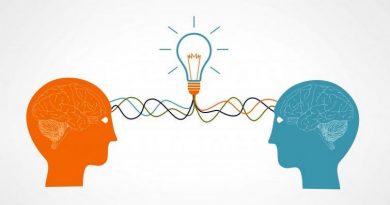Is biohacking ‘the practice of medicine?’: Regulators might think so
In an unprecedented regulatory move, a famous biohacker is under investigation in California for allegedly practicing medicine without a license. The complaint against Josiah Zayner, Ph.D., CEO of the biohacking-promoting startup The Odin and who made headlines for supposedly injecting himself with DNA in front of a live audience, was filed by a viewer of Zayner’s Youtube videos.
California Business and Professions Code 2052 prohibits any person’s practice, attempts to practice, or advertisement of the practice of, “any system or mode of treating the sick” or diagnosing, treating, operating for, or prescribing for “any ailment […] without having at the time of so doing a valid, unrevoked, or unsuspended certificate” to practice medicine. If found guilty, Zayner could face up to $10,000 in fines and imprisonment.
This unanticipated form of attempted regulation has surprised both biohackers and scholars, and raised questions of its potential impact on the field of citizen science.
Zayner is one of many biohackers in a growing citizen science movement. Individuals interested in learning about biomedical science have built community lab spaces or conducted experiments in settings independent of traditional science institutions. The goal is to promote access to science education and knowledge that are otherwise hidden behind journal paywalls and accessible only to those within research institutions.

The social media reaction to the investigation into Zayner and his subsequent efforts (he taped and streamed his interview with investigators) has been mixed. Some defended Zayner and his efforts to educate. Some were unimpressed with Zayner’s more extreme actions and saw this as an understandable and inevitable reaction from regulators. Others were outraged, expressing distrust of both government and establishment science and medicine.
For citizen scientists, academics, lawyers, and policymakers, this incident raises many questions. What, exactly, is “the practice of medicine,” and do Zayner’s Youtube videos qualify? What are the best ways to regulate a movement that is, by nature, decentralized and run by individual actors? How should society balance protecting public health and safety with encouraging citizen science’s goals of open communication and access to knowledge?
Most immediately, however, is a concern expressed by biohackers in the aftermath of the news — will aggressive regulatory enforcement and penalties drive biohackers underground?
One reason this accusation against Zayner is resonating with observers is the perceived lack of transparency around the allegation, creating worries of regulatory overreach. Many commenters on social media found that this regulatory response validated their distrust in government, speculating that the complaint is being used to make an example of Zayner, or may have been filed in bad faith.
Moving biohacking activities and communication away from the public eye might become a strategy to avoid regulatory attention. Biohackers and citizen scientists’ major goal of promoting open access to knowledge depends on the ability to openly communicate. Regulators seeking to protect public safety and promote responsible practices need visibility to what’s happening on the ground, and benefit from biohackers’ transparency.
It remains to be seen how or if the California Department of Consumer Affairs will move forward with Zayner’s case. In the meantime, policymakers and regulators should consider recommendations that may help to promote open relationships between biohackers and regulators, as well as protect biohackers and citizen scientists.
For example, increasing transparency by developing a consistent regulatory agenda across regulatory institutions and educating biohackers on what they may be held liable for would benefit both biohackers and regulators.
Citizen science and biohacking have the potential to promote science education access and engagement, and to empower individuals to conduct and share research. As regulators work to protect public safety, they should also take care to encourage, not hinder, citizen science’s most promising goals of communication, innovation, and open access to knowledge.
-By Rebecca Hsu, research coordinator with the Center for Medical Ethics and Health Policy at Baylor College of Medicine



